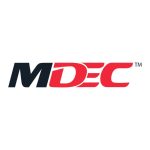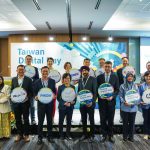The Malaysia Digital Economy Corporation (MDEC) has reached out to educators to help them with their teaching preparations, as part of the #CikguJuaraDigital programme launched in 2019 which tracks and identifies teachers who can be showcased as trendsetters or benchmarks in relation to educational technology in Malaysia.
The programme aims to support students who are involved in the ‘Teaching and Learning At Home’ (also known as Pengajaran dan Pembelajaran di Rumah or PdPR) programme which was implemented as a result of the ongoing COVID-19 pandemic threat.
Much of the PdPR structure involves learning via various online methods. After more than a month of its implementation, MDEC has been following multiple stories about the experiences of teachers, students and parents getting accustomed to this new norm.
According to a statement by MDEC, there are teachers who have lamented about the less than encouraging ‘attendance’ of students and the ‘monitoring’ by parents when teachers perform their duties. One of the situations that grabbed the public’s attention was an incident involving a student who mischievously shared an inappropriate video link during the PdPR period.
One of the programme participants, Cikgu Norhailmi Abdul Mutalib, said that after undergoing the programme, he enrolled in the TikTok workshop that MDEC organised and discovered how he could use the application and tap on its great potential to help students in their learning process.
“Thereafter, I created a TikTok account in October 2020 and started uploading video content with notes on Science subjects,” he told MDEC. “At times, I also recorded simple experiments to make it easier for students to understand the topic that was being discussed.”
Norhailmi, who teaches Science subjects to Form Four and Five students at Sekolah Menengah Kebangsaan (SMK) Jerlun, Kedah, shared how these methods have been very helpful because the video content has a shorter duration.
“This also saves the students’ Internet quota, when compared to the tele-learning methods as that takes longer and results in higher data usage,” Norhailmi said. “Not all of my students subscribe to an Internet plan on a monthly basis because some of them purchase the daily-pass data packages.”
Through the @cikguhailmi TikTok account, he has gathered more than 11,000 followers and uploaded almost 120 videos to date.

“Amongst those who got the highest views were videos related to experiments on ‘Air Pressure’, which garnered more than 268, 000 views while videos related to ‘Natrium’ experiments received almost 80, 000 new followers,” he said.
Norhailmi was also acknowledged as one of the 50 Best Teachers in the World, an accolade presented by Varkey Foundation for receiving 113,700 likes in a single post. This is on par with a local social media celebrities’ popularity.

Explaining further, Norhailmi said, he started using TikTok in his teaching due to several factors. “I found that students were not interested in following PdPR due to the non-conducive learning environment, which contributed to a decrease in their interest towards their studies. Therefore, an immediate solution was required.”
Meanwhile, another teacher, Ahmad Adham Berhaumidin who was recognised as the “Digital Champion Teacher” in the #CikguJuaraDigital programme for last year, shared his experience of using social media applications in PdPR to facilitate his students’ learning.
Teaching the Additional Mathematics subject to Form Four and Five students at the Sultan Alam Shah Islamic College, Klang, Selangor, he said that with the tips and information that MDEC shared, it had opened up the opportunity for teachers to improve their skills and knowledge on Information Communication Technologies (ICT).

“This can increase the efficiency of PdPR. I do not rely on one type of social media platform and I have diversified my teaching through the use of Facebook, YouTube, blogs and even Twitter,” he said.
According to Ahmad Adham, his YouTube account, @dehewaraspak, is now followed by almost 1,500 internet surfers who are interested in learning more about problem solving in the Additional Mathematics subject.
“I also prepare sample questions on Mathematics and set-up casual chat slots with students to ensure that I support with time an avenue to ask questions online,” he said.
MDEC, with the strong support of KKMM and the other ministries will continue to drive forward the digital economy initiatives centred towards ensuring shared prosperity for the many and eventually envisioning Malaysia’s role as the heart of digital ASEAN.
“This initiative is focused on enabling digital adoption amongst our educators, which is a central part of MDEC’s three main strategic thrusts, including Empowering Malaysians with Digital Jobs ad Skills, enabling Digitally Powered Businesses and attracting Digital Investments,” said Chairman of MDEC, Datuk Wira Dr Hj. Rais Hussin Mohamed Ariff. “To achieve its vision of enabling a people first society, the agency continues to set the foundation for Malaysians to thrive in the Fourth Industrial Revolution (4IR), further supporting the nation’s efforts to realise the Malaysia 5.0 vision, leading to shared prosperity for all.”
Meanwhile, MDEC’s Vice President of Digital Skills and Digital Careers Division, Dr Sumitra Nair shared how the MDEC-trained group of teachers have the resilience, creativity and technology sensitivity to ensure that their students are not left behind due to the uncertain situation faced by them currently.
“The MDEC’s “Digital Champion Teachers” group have not made the COVID-19 pandemic an obstacle for them to continue educating. They are also not curtailed by technology, instead they continue to learn, lead and share the best practices and overcome the difficult moments together with the students.
These teachers are an inspiration for those who aspire to contribute more, especially in these difficult times,” she added. More information about this programme can be found at https://mdec.my/mydigitalmaker/cikgu juara-digital.
MARKETING Magazine is not responsible for the content of external sites.









